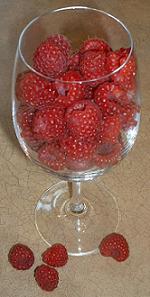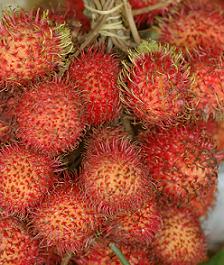I feel your pain. Just what, exactly, is a rambutan, and how am I supposed to pick this aroma out of a glass of wine, when I don’t even know what it is?
The language of wine is a perpetual source of contention with wine lovers and haters alike. Wine is a specialized area that comes with its own attendant vocabulary; there is continual debate over how to “correctly” describe wine, but the rules are fluid and constantly changing. For the novice attending a wine tasting or reading a tasting note, it is akin to wandering into an astrophysics convention. (“Wasn’t Positron a video game from the ’80’s?”)
 Certainly some wine writers take things a little too far, littering their descriptions with obscure fruits and bizarre metaphors. (FYI: a rambutan is a tropical Asian tree fruit related to the lychee.) Others go in for supposedly “factual” accounts, describing the quantitative levels of tannin, acid, and sugar. But even this method is subjective and dependant upon a certain level of familiarity with wine and its constituents.
Certainly some wine writers take things a little too far, littering their descriptions with obscure fruits and bizarre metaphors. (FYI: a rambutan is a tropical Asian tree fruit related to the lychee.) Others go in for supposedly “factual” accounts, describing the quantitative levels of tannin, acid, and sugar. But even this method is subjective and dependant upon a certain level of familiarity with wine and its constituents.
If you think about the nature of language itself you’ll likely end up having an existential crisis; language is largely relational and the way we describe things is mainly through comparison. Just look at any passage in any book and pick out how many times the author uses various methods of comparison to convey the text’s message (ie. adjectives, adverbs, metaphor, simile). Now try to describe something without using these same conventions – but stop before the frustration makes you scream in futile anger.
We have to say that a wine tastes like raspberries because the alternative would take up too much space, and probably not make any more sense. We could say that a wine has medium weight, high tannins, and low acidity, but most people also want to know a few specific flavours – bringing us back to square one.
Luckily, most people don’t need to put too much thought into wine. And for those who do, hopefully they don’t alienate their friends and family with jargon-heavy exhortations. Often a simple grunt of pleasure is the most accurate tasting note of all.
And if you’re sick of ridiculous wine descriptions, check out this Silly Tasting Note Generator for a light-hearted take on conventional tasting notes.
